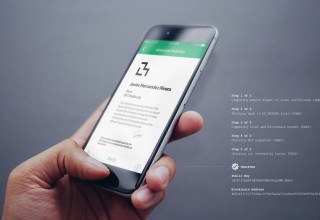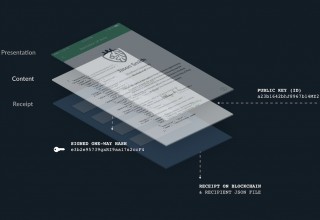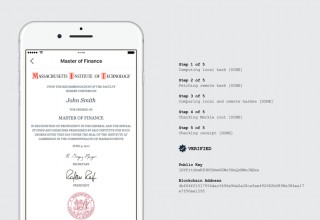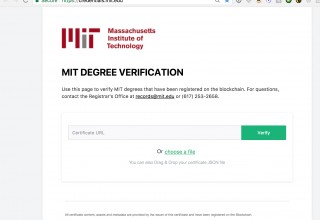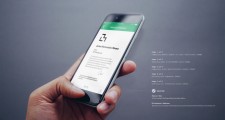
Report provides guidance for policymakers and education officials regarding implementation of blockchain-based credentialing.
NEW YORK, November 14, 2017 (Newswire.com) - Learning Machine is pleased to be included in the "Blockchain in Education" report released by the Joint Research Centre of the European Commission. The report is an advisory tool for government policymakers and education officials seeking to understand blockchain technology and best practices for implementing blockchain-based credentialing across their institutions.
The report, authored by Drs. Alexander Grech and Anthony Camilleri and edited by Andreia Inamorato dos Santos, begins by introducing blockchain technology and then moving to the issues at stake in academic credentialing. Case studies of blockchain-based certification initiatives in education are also described in detail: the Open University (UK), the University of Nicosia (Cyprus), MIT (USA), and Maltese educational institutions via a pilot program led by the Ministry for Education and Employment (Malta).
To ensure development of open blockchain implementations we recommend that the EU in collaboration with Member States consider creating and promoting a label for 'open' educational records, which enshrines the principles of recipient ownership, vendor independence and decentralised verification - and only supports or adopts technologies in compliance with such a label.
Drs. Alexander Grech and Anthony F. Camilleri, Authors, "Blockchain in Education"
The authors of the report view academic credentials as an important form of social currency for learners and as a social good more broadly. Accordingly, maximizing longevity, portability, and interoperability is critical if learners are to make the most of their blockchain-based credentials. A key conclusion of the report, therefore, is the importance of using open technology standards to issue, hold, and verify blockchain-based credentials. The authors write:
"To ensure development of open blockchain implementations we recommend that the EU in collaboration with Member States consider creating and promoting a label for ‘open’ educational records, which enshrines the principles of recipient ownership, vendor independence and decentralised verification – and only supports or adopts technologies in compliance with such a label."
Based on these values, the report features an in-depth discussion of the Blockcerts open standard for issuing and verifying official records on the blockchain. Blockcerts was developed in 2016 by the MIT Media Lab and Learning Machine and is currently the only open standard in the world for anchoring records to the blockchain. It is free for any vendor, government, or researcher to use to build their own applications. Learning Machine has also built a series of enterprise applications that make issuing using the Blockcerts standard easy for institutions. Its customers include two of the report's featured case studies: MIT and the Maltese Ministry for Education and Employment.
In line with their emphasis on academic records as a social good, the report authors also emphasize the importance of learners having administrative control over their personal data. Accordingly, they make use of the concept of "self-sovereign identity," in which individuals choose when and how their data is disclosed to third parties. The report's Recommendations conclude:
"It is unrealistic to expect that data protection legislation that concentrates on putting the onus on data-handlers alone will be enough to prevent the abuse and mishandling of highly sensitive personal data. The concept of self-sovereignty, whereby users own their own data and share in the responsibility for its management, is a preferable model for data management. For users to take advantage of self-sovereignty, they need to be made aware of the different options available for data management, and the advantages and trade-offs of each one. These principles should be integrated into education frameworks relating to digital competences for lifelong learning."
Accordingly, the report stresses that governments and educational institutions have a major role to play in defining new best practices around learner data management. Blockchains make new types of digital identity — like self-sovereign identity — possible. However, self-sovereign initiatives must be supported by governments and educational institutions in order to prevent proprietary and centralized data management approaches from overtaking blockchain-based records and digital identity.
Source: Learning Machine
Share:

